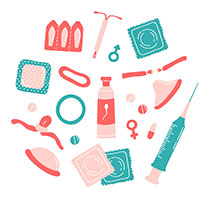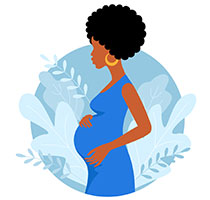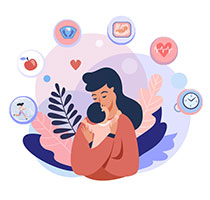Substance Abuse Prevention and Control
Real Talk. Real Options.
Real Talk. Real Options.

Talk to your provider about your sexual and reproductive health options.
About
Sexual and reproductive health are essential for individual, family and community health and well-being.
Bodily autonomy and the ability to make personal and intimate decisions about our health are fundamental rights.
Your ability to make personal and intimate decisions about your health are a fundamental and standard component of primary care, as well as within substance use disorder (SUD) treatment.
MISSION:
Everyone living in, or seeking care in Los Angeles County must have equitable access to high quality sexual and reproductive health services, counseling, and information when participating in SUD treatment - regardless of race, ethnicity, sexual orientation, gender, income, insurance, or immigration status.
It is essential to have open, honest, and non-judgmental conversations in SUD treatment settings about sexual and reproductive health between providers and patients, partners, and family members. These conversations are vital to support one’s sexual and reproductive health and wellness, and must be prioritized, normalized, and integrated into diverse health and SUD treatment community settings.
We believe encouraging conversations about sexual and reproductive health, that are free from stigma, is an important step toward ensuring health equity and reproductive justice for all.
MISSION:
Everyone living in, or seeking care in Los Angeles County must have equitable access to high quality sexual and reproductive health services, counseling, and information when participating in SUD treatment - regardless of race, ethnicity, sexual orientation, gender, income, insurance, or immigration status.
It is essential to have open, honest, and non-judgmental conversations in SUD treatment settings about sexual and reproductive health between providers and patients, partners, and family members. These conversations are vital to support one’s sexual and reproductive health and wellness, and must be prioritized, normalized, and integrated into diverse health and SUD treatment community settings.
We believe encouraging conversations about sexual and reproductive health, that are free from stigma, is an important step toward ensuring health equity and reproductive justice for all.



The REAL TALK. REAL OPTIONS. program, developed by the Department of Public Health, Substance Abuse Prevention and Control (DPH-SAPC) in collaboration with Essential Access Health, is focused on integrating discussions around sexual and reproductive health in SUD treatment settings.
DPH-SAPC is dedicated to promoting and encouraging ongoing conversations about sexual and reproductive health options to lessen the stigma associated with pregnancy and reproductive health choices for individuals in SUD treatment settings.
Your Options
Resources and Support
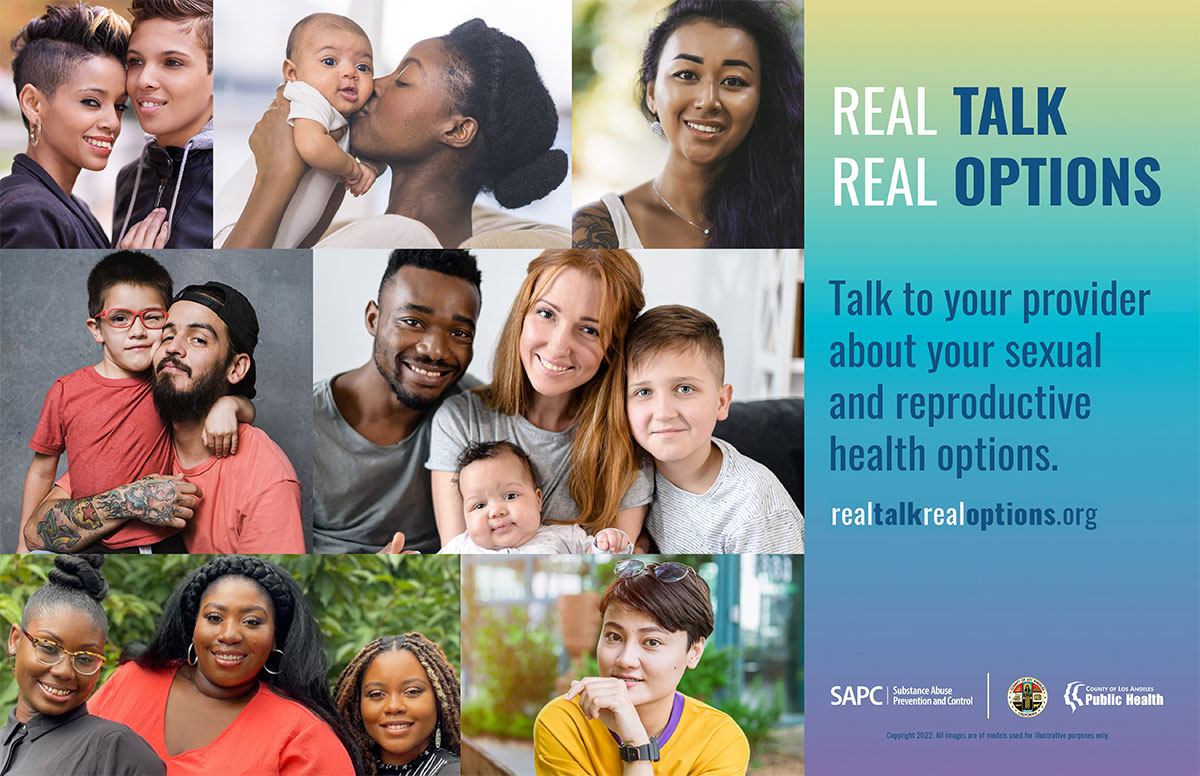
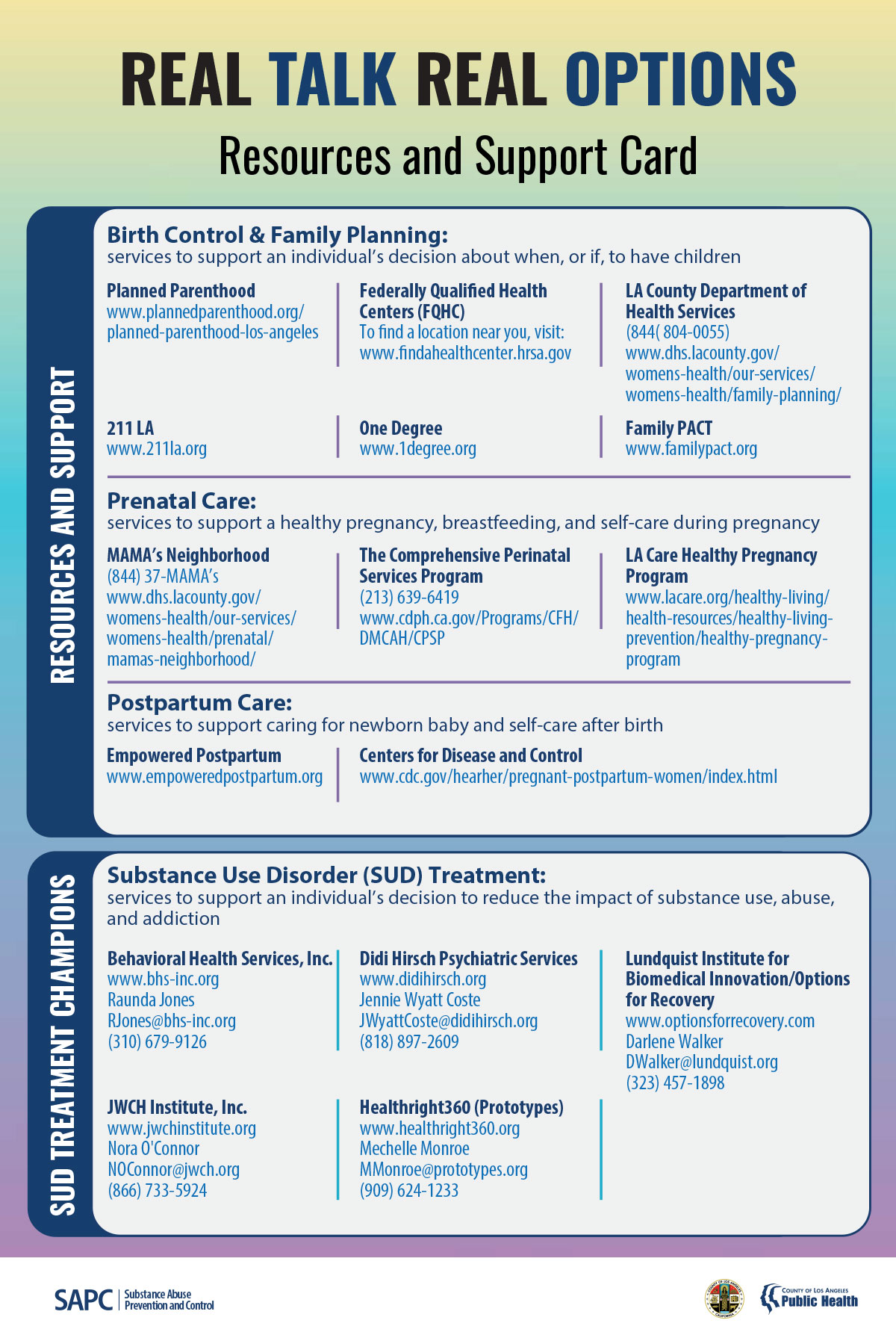
Birth Control & Family Planning:
services to support an individual’s decision about when, or if, to have children
Planned Parenthood
Visit website for Los Angeles Planned Parenthood
Visit website for Los Angeles Planned Parenthood
Prenatal Care:
services to support a healthy pregnancy, breastfeeding, and self-care during pregnancy
LA Care Healthy Pregnancy Program
Visit website
Visit website
Postpartum Care:
services to support caring for newborn baby and self-care after birth
Empowered Postpartum
Visit website
Visit website
Centers for Disease and Control
Visit website
Visit website
Substance Use Disorder (SUD) Treatment:
services to support an individual’s decision to reduce the impact of substance use, abuse, and addiction
Didi Hirsch Psychiatric Services
Visit website
Jennie Wyatt Coste
JWyattCoste@didihirsch.org
(818) 897-2609
Visit website
Jennie Wyatt Coste
JWyattCoste@didihirsch.org
(818) 897-2609
Lundquist Institute for Biomedical Innovation/Options for Recovery
Visit website
Darlene Walker
DWalker@lundquist.org
(323) 457-1898
Visit website
Darlene Walker
DWalker@lundquist.org
(323) 457-1898
Contact
- LA County Department of Public Health – Substance Abuse Prevention and Control: If you or someone you know has a substance use disorder, also known as addiction, we can help. Reach out anytime on multiple platforms:
- Los Angeles County Substance Abuse Service Helpline (SASH) – call toll-free 1-844-804-7500
- Find treatment services online using our Service and Bed Availability Tool (SBAT)
- Download our Recover LA app to your mobile device: www.RecoverLA.org
- Visit the LA County Department of Mental Health or call their 24/7 HELP LINE AT (800) 854-7771
If you or a loved one is experiencing or affected by a mental health, substance use, or suicidal crisis,
please call or text ‘988’ (or chat online on 988 Suicide & Crisis Lifeline’s website) for free, confidential, and immediate help.






